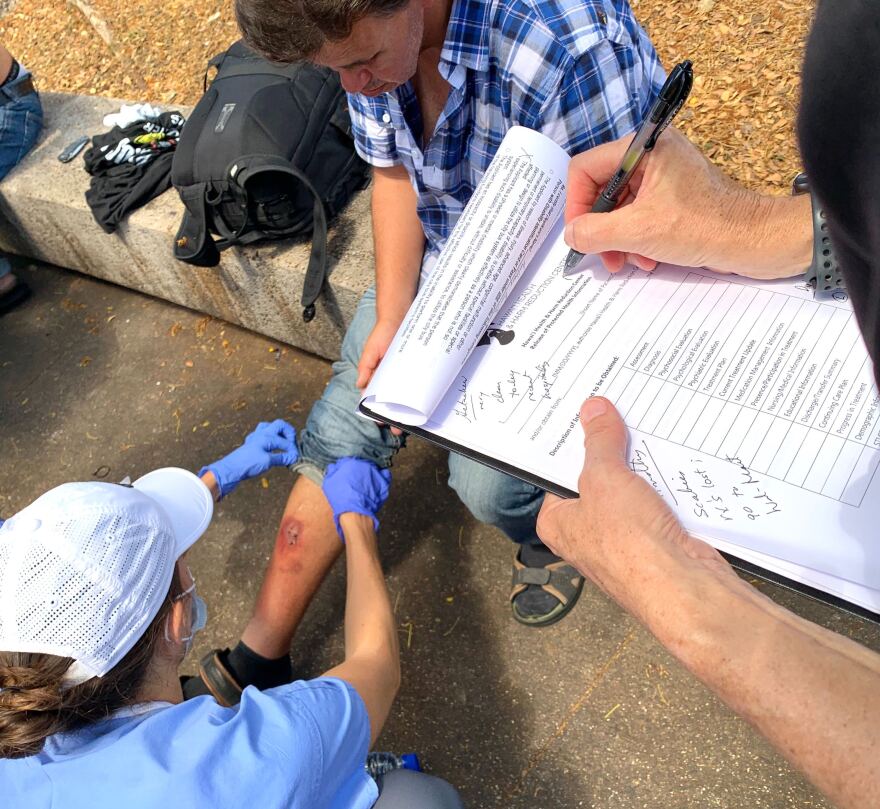This week's Homeless Awareness Conference highlighted gains by county governments as well as areas of need across the state. Heads of critical agencies and services, leaders of community organizations, social workers, and others offered recent data and perspectives. Across the board, they are bracing for the future.
Talking about homelessness means talking about housing, and connecting the two is an ongoing process. Honolulu City Land Management Director Sandy Pfund says the City Council has appropriated close to $180 million toward affordable housing since 2016. Here's what the strategy has been: Looking for existing, turnkey buildings up for sale, and concentrating on smaller projects, to integrate affordable housing into neighborhoods.
"We also wanted to look at innovating housing solutions. So we looked at container housing, modular housing, conversion of commercial properties," Pfund said.
They also focused on special needs like elderly and family housing, as well as housing for domestic violence victims and those with substance abuse disorders.. Pfund described 11 affordable housing projects undertaken by the city in the last five years.
"Through all of the projects I showed you," Pfund concluded, "we added 1,472 units [to] the housing inventory." There were 1,180 existing units.
The challenge is the demand for affordable housing. Laura Thielen, executive director of Partners in Care, Oahu's homeless services coordinator, says the need for affordable units is dire.
"I know for the county of Honolulu, the latest report I saw was about 20,000," said Thielen. "And it's going to be very difficult to see what will happen once the moratorium on evictions ends."
"Along with people possibly losing their units," she continued, "it's also the landlords, their livelihoods have been greatly affected. If they have to shut down their rentals or keep them empty or keep them filled with people who can't pay the rent, there's a possibility of that number going up significantly."
Conference participants hailed collaborations that have grown across the state since the pandemic began. Maude Cumming of Family Life Center on Maui says advances in collecting and using data have improved delivery of services.
"Timeliness, timeliness, timeliness," says Cumming. "Seventy-two hours, get that information in. So what we're looking at is real data on time. And we can, for example, say to a funder this is what is happening right now."
Jen Jenkins, policy advocate with the Office of Hawaiian Affairs, pointed to Native Hawaiians' disproportionate representation in both homelessness and the criminal justice system.
'We recognize that houselessness is being heavily criminalized," says Jenkins. "For things such as obstructing sidewalks, trespassing, sleeping in parks after dark, sit-lie bans, and this is proliferating especially among the Native Hawaiian community."
Jenkins maintains, "Expungement would allow for expungement of conviction records for certain state and county offenses that arise from a person's houseless status." OHA will seek legislative action on expungement.
State Homeless Coordinator Scott Morishige pointed to Hawai'i's 37 percent increase in homelessness after the 2009 recession. It happened slowly between 2009 and 2016.
He expects a similar increase on a much larger scale from the economic impact of the pandemic. Morishige said keeping people in their homes should be a top priority, and living conditions for thousands across the state could depend on coalitions formed over the last nine months.




